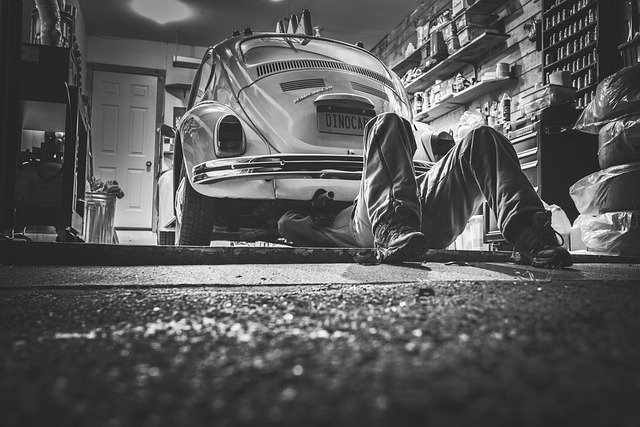A Practical Way to Refresh Your Garage Floor
Your garage floor takes a beating from daily use, chemical spills, and heavy vehicle traffic. Over time, concrete surfaces become stained, cracked, and unsightly, affecting both the appearance and functionality of your space. Garage floor coatings offer an effective solution to transform this worn surface into a durable, attractive, and easy-to-maintain floor that can withstand years of heavy use.

What Makes Epoxy Coating for Concrete So Effective?
Epoxy coating for concrete creates a chemical bond with the existing surface, forming a robust protective layer that’s significantly stronger than paint. This two-part system consists of resin and hardener that, when mixed, creates a thermosetting polymer. The result is a floor covering that resists chemicals, impacts, and abrasions while providing excellent adhesion to properly prepared concrete surfaces.
The molecular structure of epoxy allows it to penetrate into the concrete pores, creating mechanical adhesion alongside chemical bonding. This dual-action approach ensures long-lasting performance, typically lasting 10-20 years with proper installation and maintenance. Additionally, epoxy coatings are available in various formulations, including water-based and solvent-based options, allowing customization based on specific garage conditions and usage patterns.
Why Choose Epoxy Coating for Garage Floor Applications?
Epoxy coating for garage floor use offers several practical advantages beyond basic floor protection. The seamless surface eliminates dirt and debris collection points, making cleaning as simple as sweeping and occasional mopping. Oil spills, antifreeze, and other automotive fluids can be wiped away without leaving permanent stains.
The reflective properties of epoxy coatings significantly improve garage lighting by bouncing available light throughout the space. This increased brightness enhances safety and makes detailed work more comfortable. Many epoxy systems also include decorative chips or flakes that add texture for slip resistance while creating an attractive speckled appearance that helps camouflage minor dirt and wear patterns.
Temperature resistance is another crucial benefit, as quality epoxy coatings maintain their integrity in extreme temperature fluctuations common in garage environments. They won’t crack or peel when exposed to thermal cycling, ensuring consistent performance regardless of seasonal changes.
Finding the Best Garage Floor Covering for Your Needs
Determining the best garage floor covering requires evaluating several factors including budget, durability requirements, aesthetic preferences, and installation complexity. While epoxy remains the most popular choice, other options include polyurethane coatings, concrete stains, interlocking tiles, and hybrid systems that combine multiple technologies.
Polyurethane coatings offer superior UV resistance and flexibility compared to epoxy, making them ideal for garages with significant sunlight exposure. However, they typically cost more and require more complex installation procedures. Concrete stains provide an economical option for improving appearance but offer minimal protection against spills and impacts.
For DIY enthusiasts, single-component epoxy kits provide reasonable performance at lower costs, though professional-grade two-component systems deliver superior durability and longevity. The surface preparation requirements also vary significantly between coating types, with some systems requiring acid etching or mechanical grinding while others can be applied over properly cleaned concrete.
Professional Installation vs. DIY Application
Professional installation ensures proper surface preparation, which is critical for coating adhesion and longevity. Contractors typically use industrial diamond grinders to create the optimal surface profile, followed by thorough cleaning to remove all dust and contaminants. They also have access to commercial-grade materials and equipment that aren’t readily available to consumers.
DIY installation can be cost-effective but requires careful attention to manufacturer instructions and weather conditions. Temperature and humidity during application significantly affect curing and final properties. Most DIY failures result from inadequate surface preparation or applying coatings in unsuitable environmental conditions.
Real-World Pricing and Provider Comparison
Understanding garage floor coating costs helps in making informed decisions about materials and installation methods. Pricing varies significantly based on coating type, garage size, surface condition, and geographic location.
| Coating Type | Provider/Brand | Cost per Square Foot | Key Features |
|---|---|---|---|
| Basic Epoxy Kit | Rust-Oleum EpoxyShield | $1.50-$3.00 | DIY-friendly, water-based |
| Premium Epoxy | KILZ Garage Floor Kit | $3.00-$5.00 | Two-part system, decorative chips |
| Professional Installation | Local Contractors | $6.00-$12.00 | Surface prep included, warranty |
| Polyurethane System | Behr Premium | $4.00-$7.00 | UV resistant, flexible |
Prices, rates, or cost estimates mentioned in this article are based on the latest available information but may change over time. Independent research is advised before making financial decisions.
Professional installation typically includes surface preparation, primer application, base coat, and topcoat application, along with warranties ranging from 3-15 years. DIY kits generally cover 250-500 square feet and include basic preparation materials, though additional tools may be required.
Long-term Maintenance and Performance
Proper maintenance extends coating life significantly while preserving appearance and protective properties. Regular sweeping prevents abrasive debris accumulation, while periodic washing with mild detergents maintains the surface finish. Avoiding harsh chemicals and using protective mats under vehicles during winter months helps prevent premature wear.
Most quality epoxy coatings maintain their protective properties for decades with minimal maintenance. However, high-traffic areas may show wear patterns after 5-10 years, potentially requiring touch-up applications or recoating. Planning for eventual maintenance during the initial installation ensures continued performance and appearance.
Garage floor coatings represent a practical investment in both property value and daily functionality. Whether choosing DIY application or professional installation, properly applied coatings transform ordinary concrete into an attractive, durable surface that enhances the entire garage environment while providing years of reliable performance.




